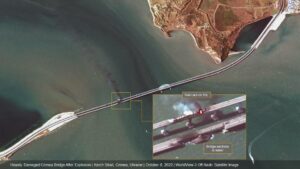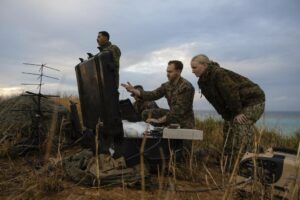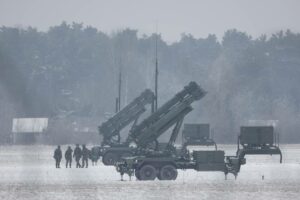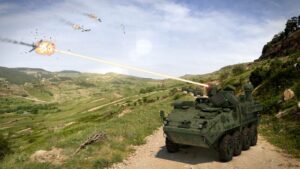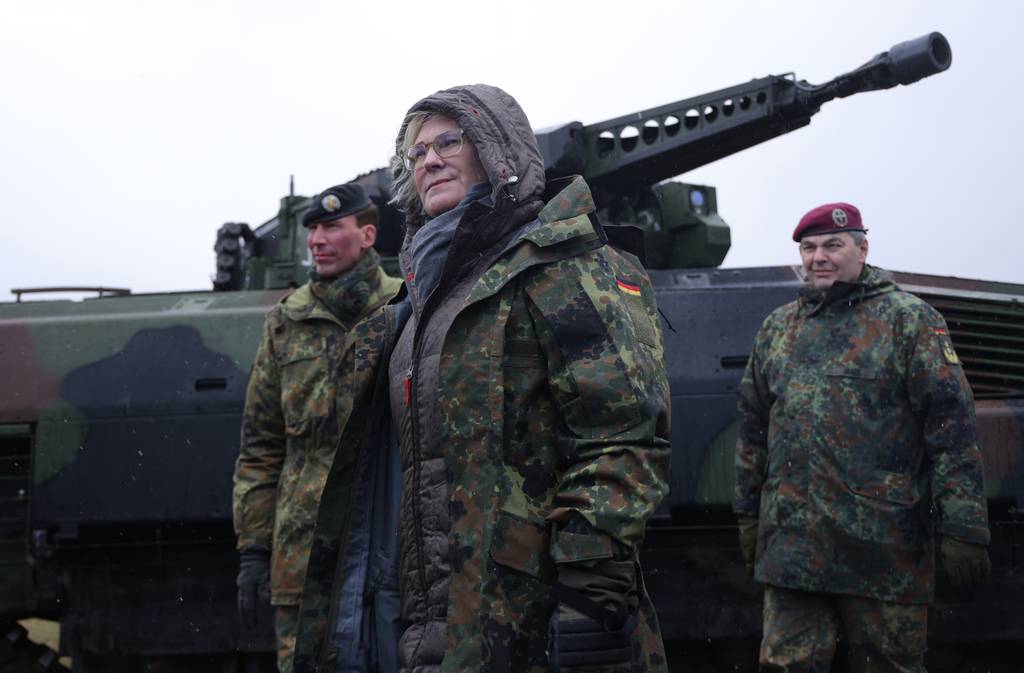
WASHINGTON — Germany’s Puma infantry fighting vehicles feature superior capabilities but are too prone to failure for actual operations, according to an initial assessment from defense officials over recent breakdowns in the fleet.
The brief statement released Jan. 4 caps weeks of intense debate in Germany about the future of the program after Der Spiegel reported in December that all of the 18 vehicles used during an exercise experienced outages.
The drill was meant as a final checkup before including the Pumas as an integral part in Germany’s contribution for NATO’s high-readiness force pool, led by Berlin in the 2023 rotation. Following reports of the Puma’s last-minute problems, officials quickly designated the Bundeswehr’s decades-old Marder vehicles as replacements.
According to the Defence Ministry, the highly digitized Puma is still a superior weapon “in principle.” But its proper functioning is too dependent on the closely interlinked collaboration of soldiers, logisticians, project managers and industry — conditions unlikely to be optimal on the battlefield.
Officials said they would invite top representatives of the Army, industry and the acquisition bureaucracy to a “near-term” meeting aimed at hammering out improved usability conditions for the vehicles. Barring effective measures to that effect, Defence Minister Christine Lambrecht froze plans for new upgrade contracts and a second lot of 50 new vehicles from manufacturers Rheinmetall and Krauss-Maffei Wegmann.
Germany’s armed forces, the Bundeswehr, have 350 Puma vehicles in their inventory, 42 of which are in an upgraded configuration meant for NATO’s high-readiness service.
Industry officials were able to fix 17 of the 18 vehicles affected by the recent exercise failures. Analyses so far paint a picture of damage “mostly” of small and medium severity, according to the Defence Ministry. But there were also more significant problems related to “high-value parts” and fire damage that happened inside a vehicle.
A Rheinmetall spokesman previously described the extent of the damage as “bagatellen,” or trivial, in most cases, German press agency dpa reported Jan. 2.
Sebastian Sprenger is associate editor for Europe at Defense News, reporting on the state of the defense market in the region, and on U.S.-Europe cooperation and multi-national investments in defense and global security. Previously he served as managing editor for Defense News. He is based in Cologne, Germany.
- SEO Powered Content & PR Distribution. Get Amplified Today.
- Platoblockchain. Web3 Metaverse Intelligence. Knowledge Amplified. Access Here.
- Source: https://www.defensenews.com/global/europe/2023/01/04/germany-sees-puma-combat-vehicles-as-great-but-too-iffy-for-war/
- 2023
- 70
- a
- Able
- About
- According
- acquisition
- After
- agency
- All
- and
- armed
- Army
- assessment
- Associate
- based
- Battlefield
- before
- berlin
- bureaucracy
- capabilities
- caps
- cases
- Christine
- closely
- collaboration
- Cologne
- combat
- conditions
- Configuration
- contracts
- contribution
- cooperation
- debate
- December
- defence
- Defense
- dependent
- described
- digitized
- during
- editor
- effect
- Effective
- Europe
- Exercise
- Failure
- Feature
- fighting
- final
- Fire
- Fix
- FLEET
- following
- Force
- Forces
- from
- functioning
- future
- German
- Germany
- Global
- great
- happened
- highly
- HTTPS
- images
- improved
- in
- Including
- industry
- initial
- integral
- inventory
- Investments
- invite
- Jan
- Led
- Lot
- Managers
- managing
- Manufacturers
- Market
- measures
- medium
- meeting
- ministry
- more
- most
- multi-national
- New
- news
- Operations
- optimal
- paint
- part
- picture
- plans
- plato
- Plato Data Intelligence
- PlatoData
- pool
- press
- previously
- principle
- problems
- Program
- project
- proper
- PUMA
- quickly
- recent
- region
- related
- released
- Reported
- Reporting
- Reports
- Representatives
- Said
- Second
- security
- sees
- service
- significant
- small
- So
- so Far
- State
- Statement
- Still
- superior
- The
- The Future
- The State
- their
- to
- too
- top
- upgrade
- upgraded
- usability
- vehicle
- Vehicles
- war
- Weeks
- which
- would
- zephyrnet



